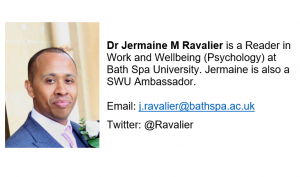Social Workers Union and Bath Spa University begin new research on reflective supervision best practices
Over the last three years SWU, BASW, and myself at Bath Spa University have been developing support mechanisms for social worker working conditions and psychological wellbeing.
Over that time, we have spoken to thousands of social workers and social work support staff about their psychological health and working conditions. We have consistently found that social workers have among the worst working conditions of any occupation in the UK. These working conditions subsequently lead to social workers wanting to leave the job, having poor levels of job satisfaction, and having high levels of presenteeism (which is where an individual continues to work despite being so ill that they should take time off) and sickness absence.
Support from colleagues, peers, and managers can act as a buffer to poor wellbeing by providing the resources that individuals need to cope at work. One support mechanism we consistently heard about from all the social workers that we spoke to is the use of reflective supervision. Across all of our studies with social workers, reflective supervision was described as one of the key approaches that can be used to support both social worker wellbeing and their practise. However, for many that we spoke to, supervision was often described as a tick box exercise designed to keep an eye on case progression rather than to support and help develop social workers.
Bath Spa University and SWU will now work together on a new piece of research which seeks to develop and make available best practise supervision for social workers and related professionals. Over the next three to six months, we will develop a comprehensive approach to best practise supervision by working closely with social workers from across the country as well as looking at the myriad of existing literature around reflective supervision.
John McGowan, General Secretary of SWU, said:
“Supervision is a key area in social work development. I am therefore delighted that SWU will be exploring the role of reflective supervision in social workers’ wellbeing with Dr Jermaine Ravalier and his team at Bath Spa University. Common feedback from members indicates that the majority of supervision is ad hoc and irregular. More significantly, feedback has highlighted that it often does not include a discussion linked to reflection, learning and development – it is often reduced to a process of case management. It is important to note that previous working conditions research has demonstrated that effective supervision is associated with higher job satisfaction, commitment to the organisation and retention.”
Carys Phillips, SWU Chair highlighted:
“In social work we have a significant professional knowledge base, a wide and varied skills base and an important set of values. We also have a keen awareness of professional accountability as a legitimate expectation of our practice; therefore, management should be ensuring that employees are receiving appropriate support through supervision and that social workers understand what is meant by effective supervision. This model is essential, and even more significant since Covid -19 has changed our way of working.”
